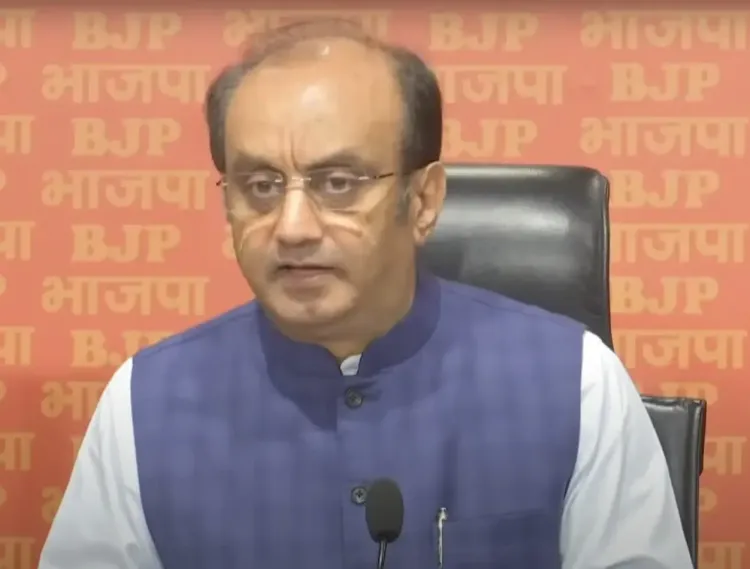BJP Uncovers Nehru-Patel Correspondence in National Herald Case

Synopsis
Key Takeaways
- BJP presents Nehru-Patel letters to highlight funding concerns.
- Patel warned Nehru about the implications of government-related funding.
- Trivedi questions Congress's intentions regarding AJL.
- National Herald was a platform for freedom fighters.
- Congress's handling of the publication has been criticized.
New Delhi, April 16 (NationPress) Amidst the Congress party's allegations of conspiracy regarding the ED's charge sheet against the Gandhis in the National Herald case, the Bharatiya Janata Party (BJP) intensified its criticism on Wednesday by revealing historic communications between Jawaharlal Nehru and Sardar Vallabhbhai Patel. These exchanges highlighted Patel's concerns regarding the funding of the National Herald.
BJP MP Sudhanshu Trivedi held a press conference where he presented written correspondence between India’s first Prime Minister, Nehru, and Sardar Patel concerning the Associated Journals Limited (AJL), the organization behind the National Herald.
Trivedi noted that Patel had reached out to Nehru multiple times, expressing unease over the funding sources, specifically mentioning that backing from individuals in power could potentially “hurt its credibility.” However, Nehru dismissed these worries, suggesting that there was “nothing wrong” with accepting donations from charitable organizations.
It is worth noting that the newspaper was established prior to India’s Independence and served as a platform for freedom fighters.
Trivedi refuted the Congress's assertions of a witch-hunt or vendetta, questioning the party’s motives regarding the “dubious” AJL transaction, where both the sellers and buyers were linked to the same group.
He pointed out that AJL published three newspapers, namely National Herald, Navjivan, and Qaumi Awaz, and stated that if the Congress party had the will, they could have kept these publications operational.
“Despite being in power for 60 years, the Herald House was shut down, which is indicative of the Congress leaders' lack of interest in sustaining the paper,” he charged.
Trivedi elaborated on the correspondence between Nehru and Patel, stating, “On May 3, 1950, Patel wrote - We are bound to face criticism for how National Herald is obtaining support from individuals linked to the government.”
In response, Nehru wrote on May 5, 1950, “We all, at times, accept contributions for charitable causes; should these be rejected or accepted under certain conditions?”
Patel reiterated his concerns over “non-charitable transactions,” but Nehru continued to dismiss these points.
“Nehru stated – In fact, Herald is quite a viable business venture, and its preference shares and debentures represent a decent investment,” the BJP MP quoted from his letter.
Trivedi also recalled a critical remark from Chandra Bhanu Gupta, a well-known Congress figure and four-time Chief Minister of UP, who mocked the notion of National Herald being treated as the private asset of the Gandhi family.









